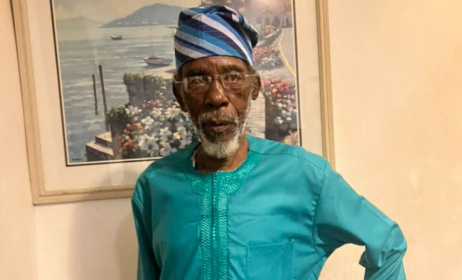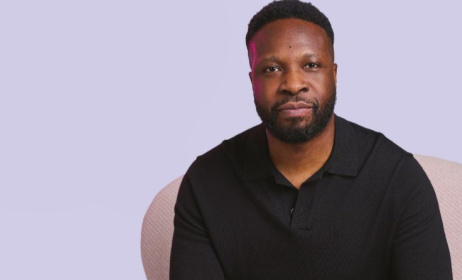Afrobeats trailblazers applauded as next chapter dawns
To the degree that key actors remain dedicated to their respective roles, Afrobeats’ cultural impact will persist, and the global community is turning to its stars to shape the next phase of the movement.
 Nigerian breakout star Shallipopi performing at Spotify's Afrobeats Celebration in Lagos, Nigeria, which ran from 13 to 14 October. Photo: Kola Oshalusi
Nigerian breakout star Shallipopi performing at Spotify's Afrobeats Celebration in Lagos, Nigeria, which ran from 13 to 14 October. Photo: Kola Oshalusi
This was the prevailing view at Spotify’s recently held Afrobeats Celebration in Lagos, Nigeria. The two-day event, which ran from 13 to 14 October, traced the Nigeria-led sound’s evolution and celebrated its digital success, with over 15.3 billion streams on the platform.
“Over the years, Afrobeats has taken shape,” local culture journalist Chinonso Ihekire told Music In Africa after the event. Highlighting its evolution through different eras, Ihekire touched on how the genre’s reach has transcended borders and found its way into diverse markets, including North America, Latin America, Europe and even some parts of the Asian markets, like India.
“People who are carrying it on their backs understand that it’s a life-changing game,” he said. “People are taking it more seriously than they did 20 years ago, and that’s why we are where we are today.”
Afrobeats’ rise to global prominence can be attributed to various factors, notably international collaborations. Furthermore, the impact of social media and the active involvement of the African diaspora have enabled Afrobeats artists to draw massive crowds in arenas across the globe, with stadium concerts as a new measure of Afrobeats’ dominance.
There’s also the expansion of music streaming, as observed by media personality and community builder Nadine Audifferen, who praises the efforts of platforms like Spotify in bringing Afrobeats to a global audience and propelling artists like Rema, Burna Boy, Davido, CKay, Wizkid and Tems to true crossover stardom, and powering breakout stars like Asake and Shallipoppi. In August, Spotify revealed that revenues generated by Nigerian artists on its platform reached ₦11bn ($14m) in 2022.
“I love the fact that more people are getting to experience Nigerian music and culture,” Audifferen said.
“It was great to see how Spotify celebrated Afrobeats across the entire entertainment ecosystem,” Trace Naija artist relations and services manager Simi Badiru noted. “Incorporating artists and podcasters was a great way to get the conversation [going].”
“When I think about the rise of Afrobeats, it’s awesome,” model and actor Oluwamayowa Adesoye added, touting Nigeria’s transformation into a global musical powerhouse. “It’s very refreshing and it gives us hope that we can do many great things. Tonight was just all about togetherness and I’m glad I came.”
Beyond these impressive strides, which have occasioned Grammys oversight body The Recording Academy’s introduction of a new African music category ahead of the 66th Grammys next year, there’s a broader sentiment that Afrobeats owes its current prominence to those who have carried its legacy with a profound understanding of its transformative potential. “Afrobeats has ventured into territories we didn’t foresee,” creative director Promise Ubor said. “I applaud the trailblazers who dedicated themselves to bringing us to this point.”
In all of this, the key to Afrobeats’ longevity, Ihekire believes, lies in authentically relating its stories and preserving its cultural essence. “We’re seeing bigger work for us,” he said. “Afrobeats will be relevant for decades to come provided we understand how to tell our own stories, shape our narratives, safeguard what needs to be safeguarded and share what needs to be shared. People are looking to Afrobeats musicians to provide the next chapter for the blossoming community.”
Ihekire’s stance echoes Rema’s rousing speech at this year’s Headies in Atlanta, USA. The ‘Calm Down’ singer, behind the first African artist-led track to surpass 1 billion Spotify streams, was a standout winner at the event, securing three trophies.
“I’m here because it is important to support our institutions, the bodies that support you to be able to achieve these major successes,” Rema said. “We are in a very sensitive period. If we don’t give our attention to our institutions, we will miss this chance that we have, and we will never have this chance again.”






























Comments
Log in or register to post comments